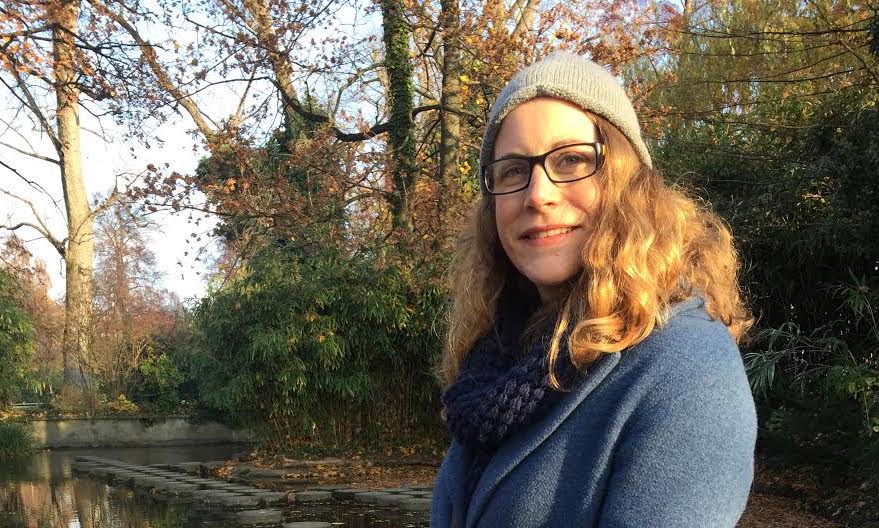
Rebecca Berrens has been awarded a prestigious fellowship to pursue her research into transposable elements in the mammalian genome.
This Fellowship will provide me with independence to achieve my long-term goal of establishing a UK-based interdisciplinary research group focused on disentangling the role of TEs in cell fate decisions.
Rebecca Berrens
A Gates Cambridge Scholar has been awarded a prestigious fellowship at the University of Cambridge to carry out research into the role of mobile elements in the mammalian genome that can cause genetic diseases and cancer.
Rebecca Berrens [2012] has been awarded the £300,000 Sir Henry Wellcome Fellowship which provides her with four years of funding for independent research at Cambridge University Cancer Research UK Cambridge Institute [CRUK-CI].
She says: "We commonly believe that genetic information in every cell of our body is the same. This is, however, only true for protein-coding genes, which make up 2% of the genome. In fact, 50% of the genome is comprised of transposable elements (TEs) which can change their genomic position. Due to such mobility, TEs can cause genetic diseases and cancer. While in most mature cells TEs are inactive, during early development, the very first embryonic cell divisions, TEs are very active.
"In my project, I will aim to understand the roles of TEs in cellular differentiation. I will develop experimental and analytical methods to investigate whether TEs are transcriptionally active in all or only a subpopulation of cells during embryonic development. These studies will reveal the molecular origins of mammalian development and could pave our way towards identification and treatment of diseases with genetic bases."
The fellowship begins in February and the research builds on Rebecca's current work in CRUK-CI where she has been a postdoctoral researcher since July 2017 in the lab of John Marioni and has been learning and developing single cell RNAseq analysis focusing on long read sequencing technologies.
During her PhD, for which she received a Gates Cambridge Scholarship, Rebecca studied how the genome controls transposable elements during early mammalian development by so-called epigenetic modifications and small RNAs. In particular she investigated how transposable elements (TEs) are controlled by epigenetic modifications during early development. She focused on small RNAs as primary silencers of TE expression during global demethylation. Her research showed, for the first time, the interplay of different epigenetic players and the diversity of regulation of TE expression in a time-resolved manner. It was published in the journal Cell Stem Cell in 2017.
She says: "The Sir Henry Wellcome Fellowship allows me to combine my knowledge I acquired during my PhD, studying Transposable Elements in early development, and the computational knowledge on single-cell RNA-seq analysis I have acquired in the short postdoc stay in the Marioni lab to study how transposable elements control the genome during early mammalian development.
"This Fellowship will provide me with independence to achieve my long-term goal of establishing a UK-based interdisciplinary research group focused on disentangling the role of TEs in cell fate decisions."

Rebecca Berrens
- Alumni
- Germany
- 2012 PhD Biological Science
- Trinity College
My name is Rebecca Berrens and I am a molecular biologist studying the role of transposable elements in early mammalian development. I did my undergraduate at the University of Heidelberg. I did my Bachelor thesis at EMBL in the lab of Matthias Hentze and studied miRNAs and was fascinated by the function of these small RNAs in the cell. I then did my Master's at CSHL in Greg Hannon's lab and learned the first time that in our genome there are transposable elements which can jump in the genome. During my PhD in Wolf Reiks lab at the Babraham institute in Cambridge I studied how the genome controls transposable elements by epigenetic modifications in early development. Now as a postdoc at CRUK-CI I am studying how transposable element expression controls gene expression during cell fate decision. This study will help to unravel the intricate relationship between the selfish jumping genes and our genome.












